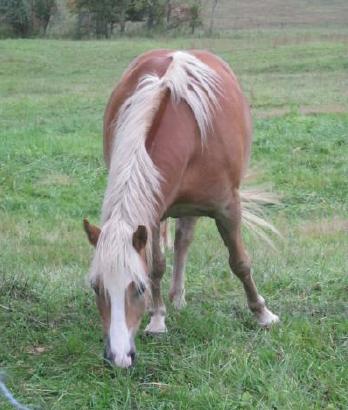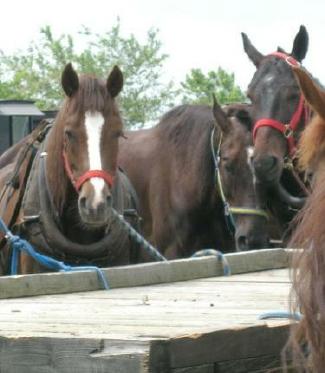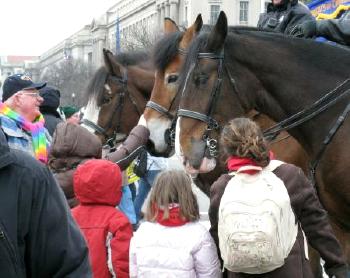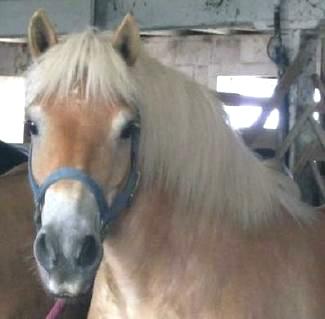 Workhorse or Showhorse? A Workhorse PresidentCampaign and media staff have so overrun the presidency that many now expect it to be a Hollywood production: "Lights! Camera! Action!" People see it as entertainment rather than work. Sometimes, too, presidents and their staffs are so focused on media coverage and the next election that they forget what the last election was supposed to produce. Certainly a president should communicate well with citizens. At times, though, the most important talks may be quiet ones with House and Senate leaders and key members of congressional committees. There should be a good balance between public and private talks. That is hard to achieve, though, when a president is roaming around the country for photo-ops and fundraising. A good way to avoid a perpetual campaign is to elect a president who pledges to serve one term only. With no more campaigns to worry about, the president can do what our best presidents have done: ✓ Stay in Washington and mind the store ✓ Make great appointments to the cabinet and the White House staff ✓ Be available to give cabinet members advice and direction ✓ Be aware of developing problems and deal with them before they become crises ✓ Preside over result-oriented meetings; ask good questions; make advisers "think outside the box" on tough issues ✓ Make much-needed decisions that other presidents have avoided--for example, ending U.S. interventionism abroad and balancing the budget at home ✓ Accept being the "bad guy" (or gal!) by making decisions that are needed but will meet storms of criticism. ✓ Take the less-traveled path that happens to be the right one. That's what a good president does.  Amish carriage horses wait for their hay The usual criticism of the one-term idea is that a president becomes a "lame duck" when it's known that there will be no second term. Some suggest that members of Congress and others will not respect a one-term president. Yet a strong, mind-the-store president, as proposed here, might well have more respect from both Congress and the public than recent presidents have received. In our media-saturated age, the public becomes weary of seeing and hearing a second-term president. The president, White House staff, and cabinet members may be worn out by the end of the first term--one reason why second terms so often are unhappy and stalemated. Worry that a one-term president will not have enough power seems overblown. That president will still be free to campaign for or against members of Congress in mid-term elections. The president will also be free to give or withhold many political and social favors that are important to members of Congress. A one-term, workhorse president can tone down the excessive pomp the office has acquired. Reduced travel will do much to accomplish this and will also save money. It is enormously expensive to fly the president, staff, Secret Service agents, and the presidential limousine around the country and the world. Given teleconferences and other communications advances, most of the travel is really not needed.
Reduced travel also will set a good example for the rest of the government. (The president is not the only one who should stay home and mind the store.) It will help the president trim the White House staff, which has grown enormously in recent decades. Much staff work is directed toward ensuring a second term--and then defending a president who runs into the typical problems of that term. While a president must carry out many chief-of-state duties, extravagance should be avoided. Sometimes a simple ceremony, with short speeches or none at all, is more impressive than a puffed-up affair that's more suited to kings and queens. We have a republic, after all, not a monarchy. Understatement suits a republic.  Demonstrators in Washington, D.C., Presidents should avoid showing-off (Air Force One flight jackets with the presidential seal); the trivial (use of multiple pens to sign a bill so guests can have souvenirs); the pompous (terms such as "POTUS" and "FLOTUS"); and the cute (giving a presidential "pardon" to a Thanksgiving turkey). There is wisdom in President Calvin Coolidge's comment that a president's words "have an enormous weight and ought not to be used indiscriminately." A president is more likely to get in trouble for saying too much than saying too little. And it's best to avoid comment on topics outside of government policy. The president is not supposed to be the country's sports expert, cheerleader, therapist, or talk-show host. The president should set a good tone for his/her administration by insisting that White House aides be courteous and professional at all times and to all comers. Tough, crude talk is common in politics today, and some reporters who covered the last administration complained about White House press aides who yelled at them and/or cursed them. Such rudeness can be prevented with a strong directive from the top. The basic message should be: "We're all adults here" and "Courtesy is not a sign of weakness." All of this is not to say that a president should be deadly-serious all the time. Abraham Lincoln relieved the huge weight of the Civil War, for himself and others, with his stories and quips. When someone complained that his greatest general, Ulysses S. Grant, drank too much, Lincoln said he would like to know Grant's favorite brand of whiskey so he could send some to the other generals. President John Kennedy, speaking to newspaper publishers in 1961, acknowledged that news photographers might be unhappy about lack of access to his golf games. "It is true," he said, "that my predecessor did not object as I do to pictures of one's golfing skill in action. But neither on the other hand did he ever bean a Secret Service man." President George H. W. Bush, speaking at a 1989 luncheon in his Maine vacation town, explained a boating accident: "...I want the record to show that when the bottom fell off of the starboard engine in our boat the other day--it was not an encounter with a lobster trap." He added: "The Coast Guard guy went out and took a look at the reef off the point there and started to tell me that he thought maybe, accidentally, I had hit a rock. And I told him, 'Look, rocks do not grow in these waters. I've been here for 65 years running around in a boat--find some other answer. Even if there is metal on the rock out there, I did not hit that rock.' ...he changed his mind as I was talking to him, and we now think it was a submerged board." Competence, good judgment, and courage are what we need most in our presidents. It is nice, though, when there is also a zest for life and an ability to laugh at oneself. Sometimes, too, a good workhorse turns out to be a good showhorse as well.  A palomino workhorse LINKS FOR MORE INFO: George E. Condon, Jr., "The White House Is Exhausted," National Journal, May 30, 2014 Paul Farhi, "Journalists Complain the White House Press Office Has Become Overly Combative," Washington Post, Dec. 22, 2011 Ellen Fried, "An Extraordinary President and His Remarkable Cabinet: Doris Kearns Goodwin Looks at Lincoln's Team of Rivals," Prologue Magazine, Spring 2006 Benjamin Hufbauer, "Turning Presidents into Pharoahs," politico.com, May 1, 2015 PrezWeNeed.com, "What a Rookie President Needs to Know," June 2015 Troy Senik, "Perils of a Pop-culture Presidency," Orange County Register, July 29, 2015 Michael Siegel (interviewed by Tom Fox), "What Makes a President a Great Leader," Washington Post, Nov. 6, 2012 Garry Wills, "A One-Term President?: The Choice," New York Review of Books, Dec. 3, 2009 |